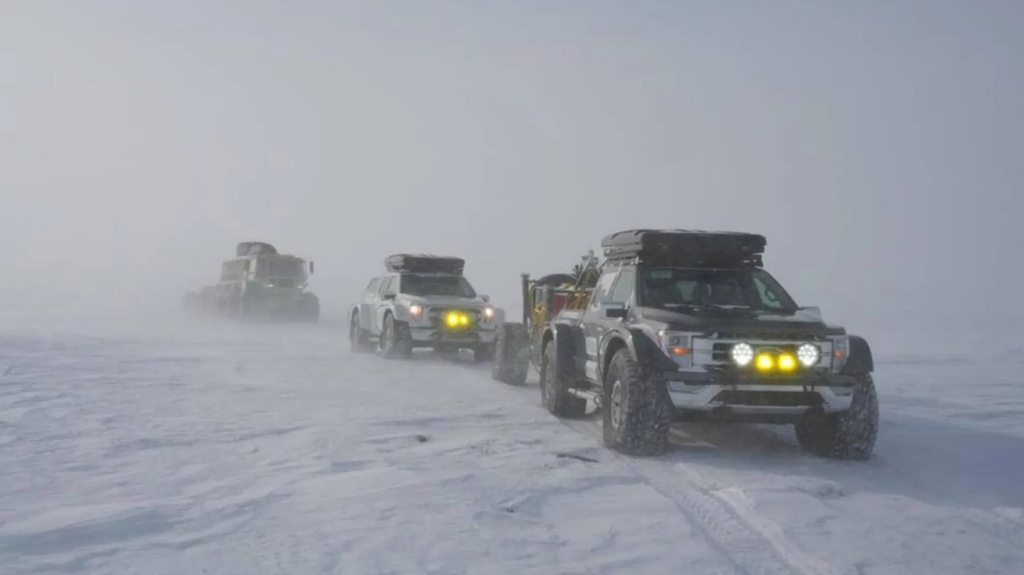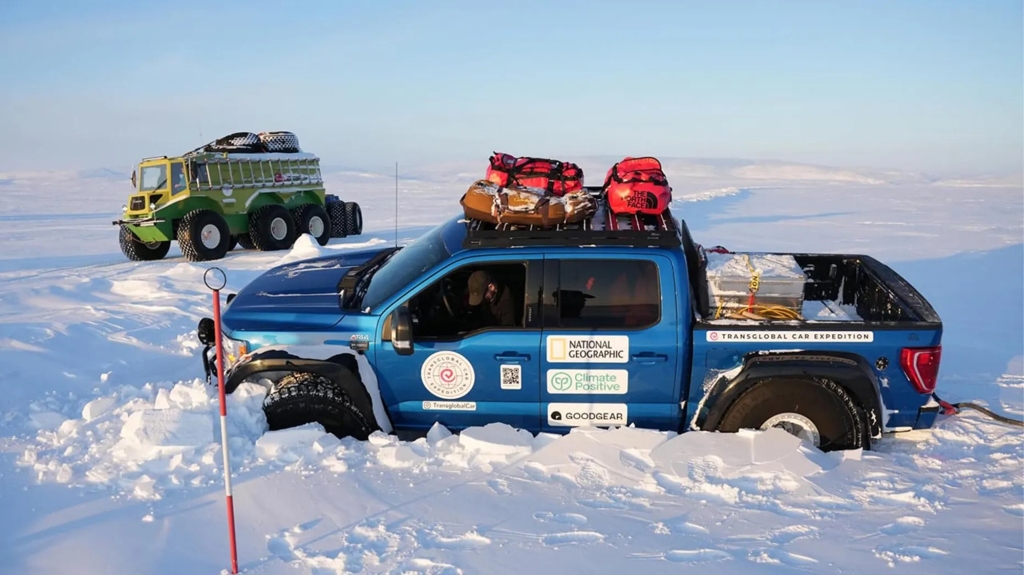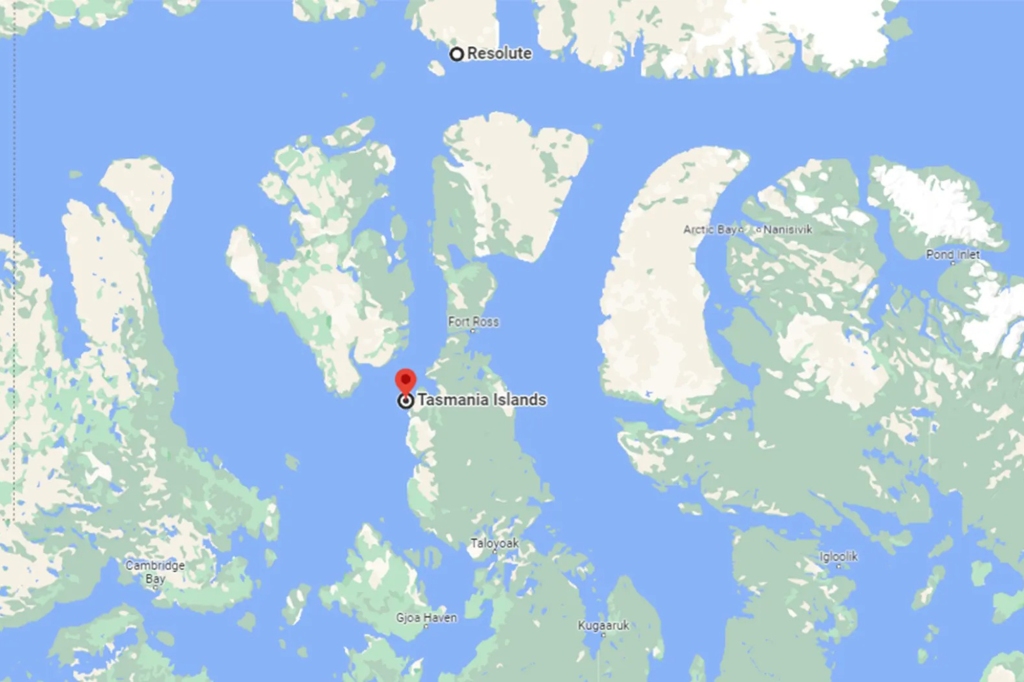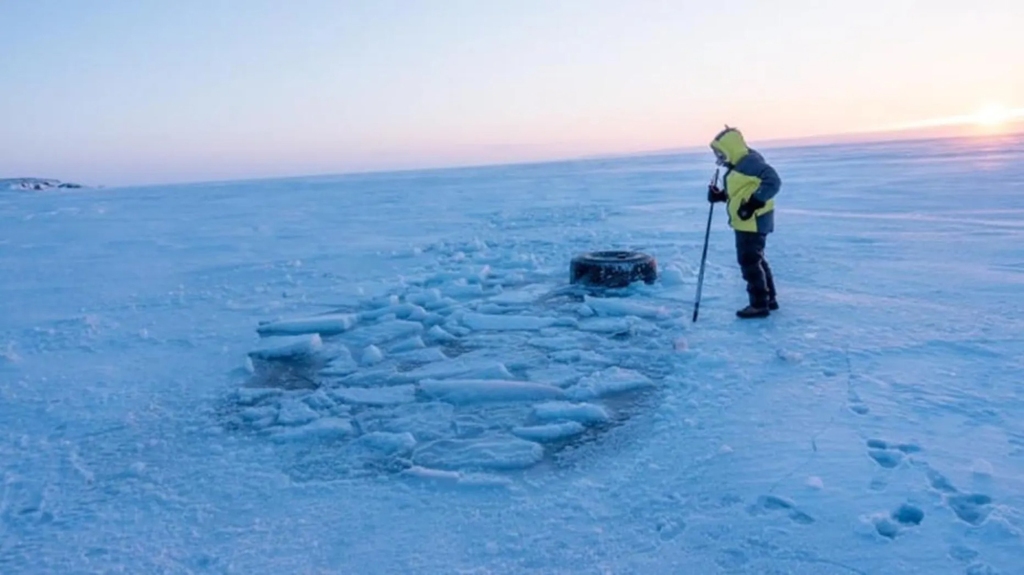Divers recovering Ford F-150 that sank in arctic waters off Canada
And you thought it was tough getting a tow on the highway.
An operation is underway to retrieve a Ford F-150 pickup that is stuck deep in the Arctic Circle … and deep underwater.
The truck was one of the first to drive over the ice from Yellowknife to Resolute, Canada, as a test run for the Transglobal Car Expedition that kicks off in 2024 with the goal of becoming the first to circumnavigate the globe through both poles with wheeled vehicles.
The customized Ford was built by Iceland’s Arctic Trucks, a company known for converting pickups and SUVs into extreme snow machines. The outfit became world-famous after several appearances on the BBC show “Top Gear” and plans to start producing vehicles in New Hampshire for sale in the U.S. and North America next year.
On the way back from its destination, the truck got caught in thinner than expected ice and eventually sank in 26-foot-deep water. No one was injured, but the team pledged to retrieve the vehicle and worked with local authorities to come up with a plan that would minimize damage to the ecosystem.


An expedition spokesman told Fox News Digital that a dozen crew members are now on the way to perform the recovery operation, which starts August 25 and is expected to take three days.
After breaking through the ice cover, divers will head into the icy water and attach float bags to the truck. The disabled vehicle will then be brought to the surface and slung to an Airbus Super Puma heavy lift helicopter that will carry it over 180 miles to Gjoa Haven, which is the nearest town with a port from where it can be shipped to Montreal.
“This is an international team of the best in the world in polar wheeled travel, augmented with experienced cold-water recovery experts and a team of Indigenous underwater camera operators. Our respect for the land motivates our desire to do the right thing to remediate the area, and also bring the world’s eyes to one of the most pristine and beautiful places on the planet,” team member and professional racing driver Andrew Comrie-Picard said in an announcement for the operation.


The F-150 was re-engineered with a suspension that can accommodate 44-inch-tall tires, widebody fender flares, an oversized fuel tank and a remote tire inflation system for adjusting the pressure to improve traction on the loosest surfaces. Arctic Trucks converts several models, including the internationally-popular Toyota Hilux featured on “Top Gear”, for rescue services, utilities, explorers and adventure travelers.
A longer cross-ice journey is being planned for next March, when Arctic Trucks is aiming to drive an F-150 from Resolute across the frozen Baffin Bay to Greenland, which will be another first.
The Transglobal Car Expedition’s full circumnavigation will start in Ushuaia, Argentina, and take it through 32 countries, requiring five trips aboard ship – around the dangerous Darien Gap connecting Colombia to Panama; from Greenland to Denmark; from Istanbul, Turkey, to Alexandria, Egypt; from Cape Town, South Africa, to Antarctica and from Antarctica back to Argentina.
The undertaking is being offset with carbon credits and sponsored by National Geographic and GoodGear, a Swiss non-profit focused on scientific research and bringing new technologies to remote communities.
Read the full article Here


